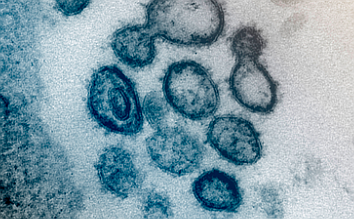Arkansas experts discussed mental health care during the covid-19 pandemic at a free virtual event Tuesday evening hosted and moderated by the Arkansas Democrat-Gazette.
Panelists said they've seen a rise in depression and anxiety related to pandemic stressors in people who are dealing with other trauma and also in those who have never experienced significant mental health issues before.
"The past 12 months have been filled with stress, fear and uncertainty, and many people are wondering about the short- and long-term effects on mental health due to covid," Managing Editor Eliza Gaines said. "To have these questions answered by Arkansas experts is a great service to our readers and community."
The way many are feeling is a normal response to an abnormal situation, said Tammy Alexander, assistant director for behavioral health at the Arkansas Department of Human Services and director of the project Promoting Positive Emotions crisis counseling services grant.
"The main message to get across is there's no one who is not affected by the circumstances we are living through right now," she said.
While everyone is dealing with the storm, people are in different boats, and some are more vulnerable, said Sufna John, a licensed psychologist and assistant professor at the University of Arkansas for Medical Sciences. John specializes in evidence-based mental health services for children and families who have experienced trauma. She said she has seen an increase in mental health referrals for children, especially in marginalized populations.
[Video not showing up above? Click here to watch » https://www.youtube.com/watch?v=5Hso_oRHgIU]
Panelists also discussed how the pandemic has affected front-line workers and senior citizens.
Tyler West, American Foundation for Suicide Prevention board member, said one of the biggest misconceptions is that the suicide rate has gone up during the pandemic. There is no evidence for that, he said, because the data simply isn't available yet.
"What we do know is people are asking for help more frequently and more often," West said. "Arkansans are reaching out for help when they need it. That's a good sign."
Panelists pointed to some possible pandemic silver linings, such as telemedicine becoming more widely used. While they agreed that there is still a stigma around mental health and seeking treatment, they said what people have collectively gone through could help more recognize its importance.
Buster Lackey, National Alliance on Mental Illness Arkansas chapter executive director, shared how he had to grapple with his own depression and anxiety while in the hospital with covid for about a month with nothing to do and unable to see his loved ones. He said mental health and physical health go hand in hand.
Panelists also shared advice on what to do when someone is struggling with their mental health. Many mental health resources are available around the state for those who may just need a little more information to longer-term options, they said.
Individuals can help by normalizing mental health care. People can also work on being more aware of their own and others "thought distortions," such as all-or-nothing thinking, John said. Physical activity and social gathering can also have a positive impact on mental health.
"Don't just isolate," Lackey said. "We kind of missed the mark when we told everybody to social distance. What we really meant was physical distance not social distance.
"The good news is, we will come out of this."
The event recording as well as more information on mental health resources will be available at www.arkansasonline.com/copingcovid/.
Anyone in a mental health crisis can call the National Suicide Prevention Hotline at (800) 273-8255.

